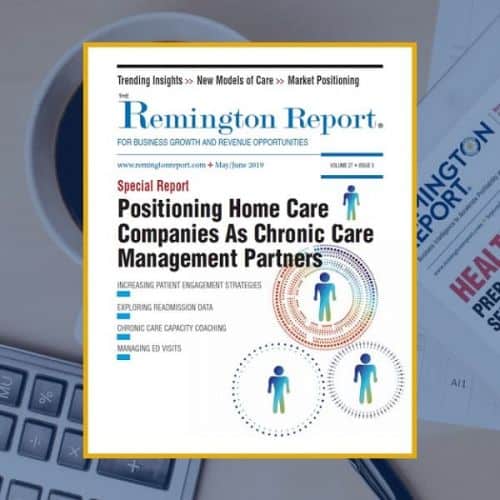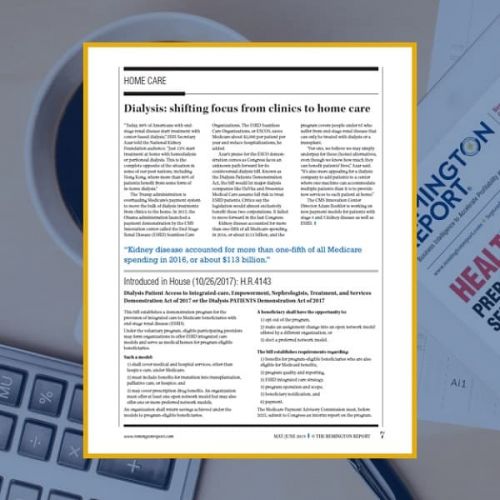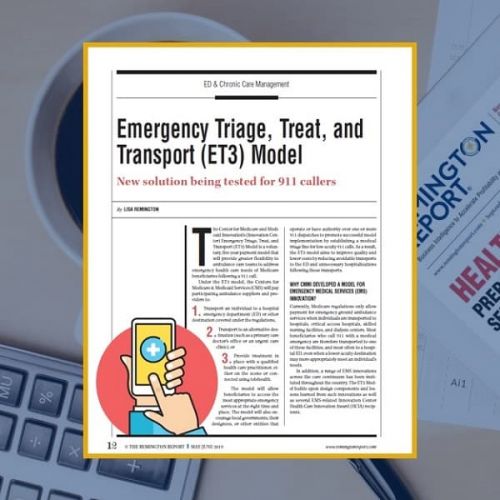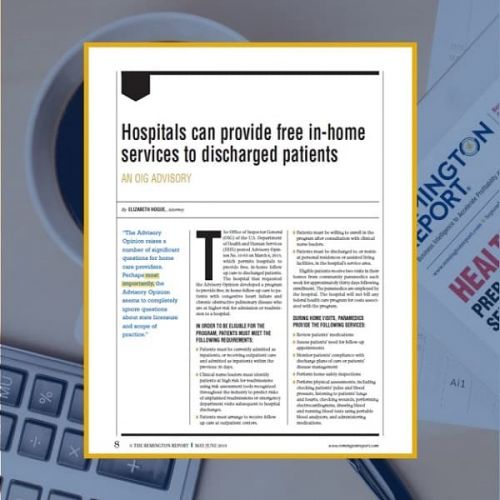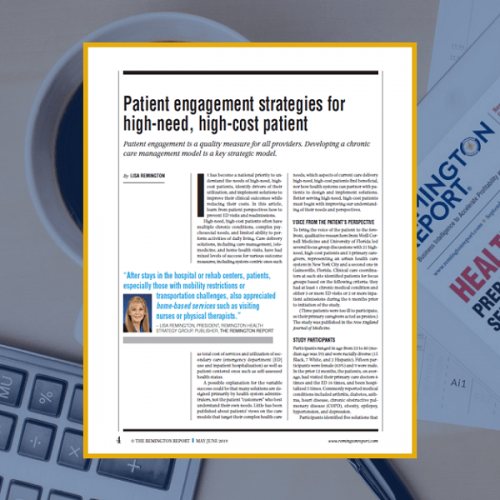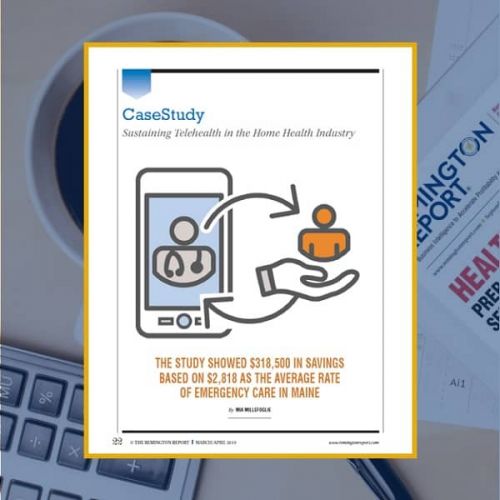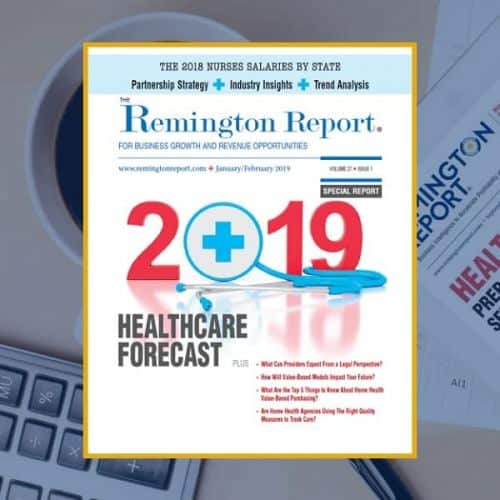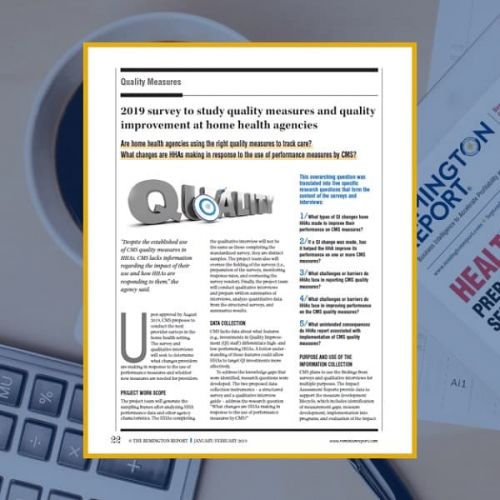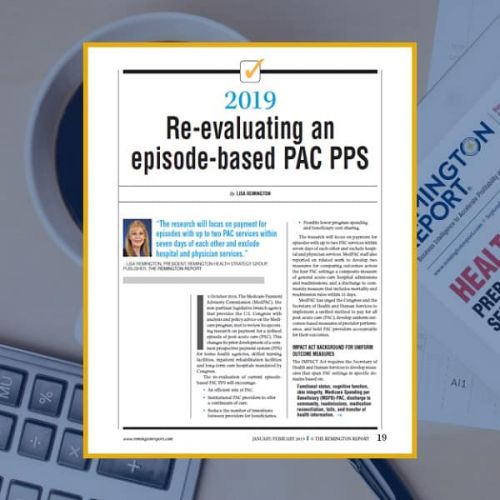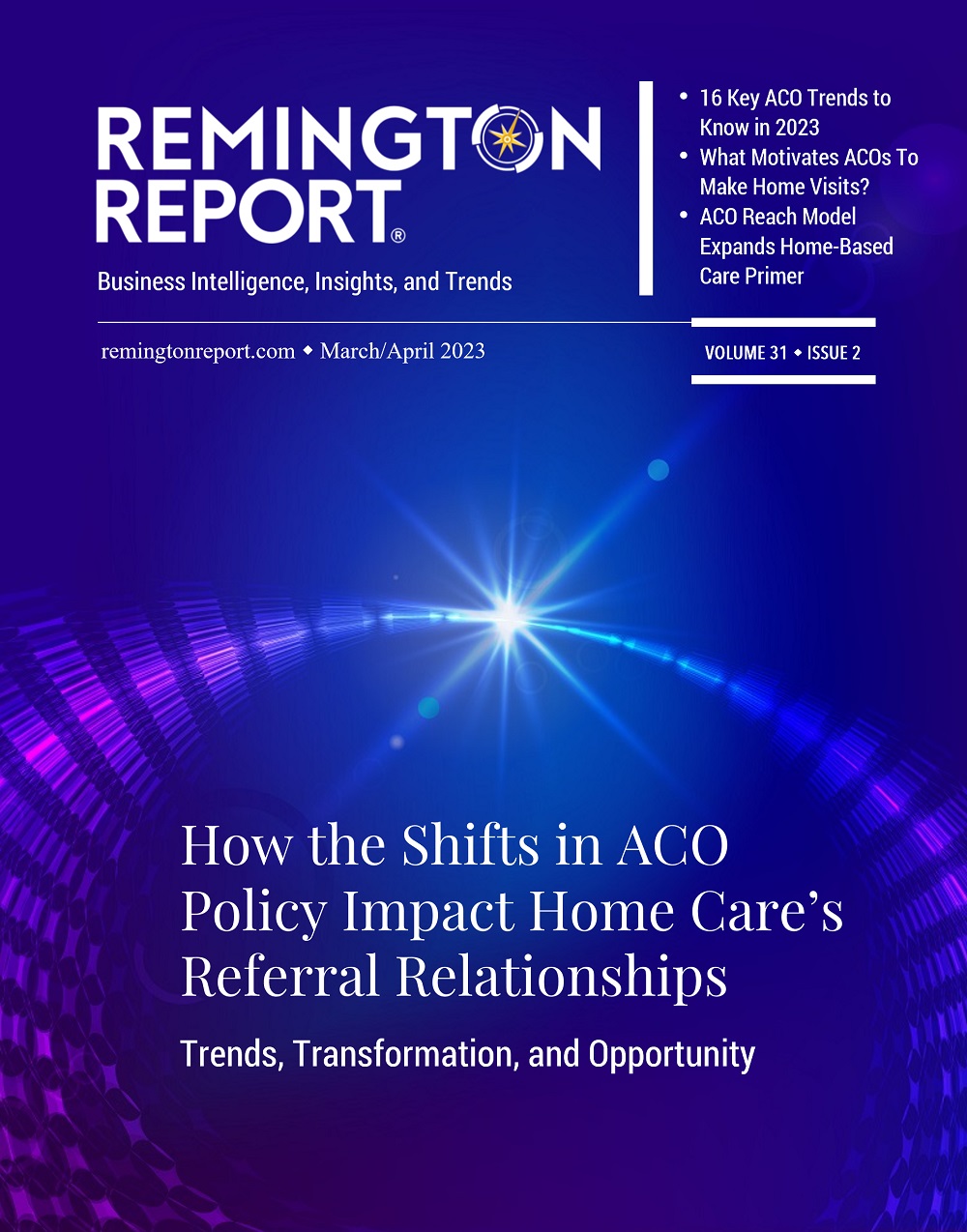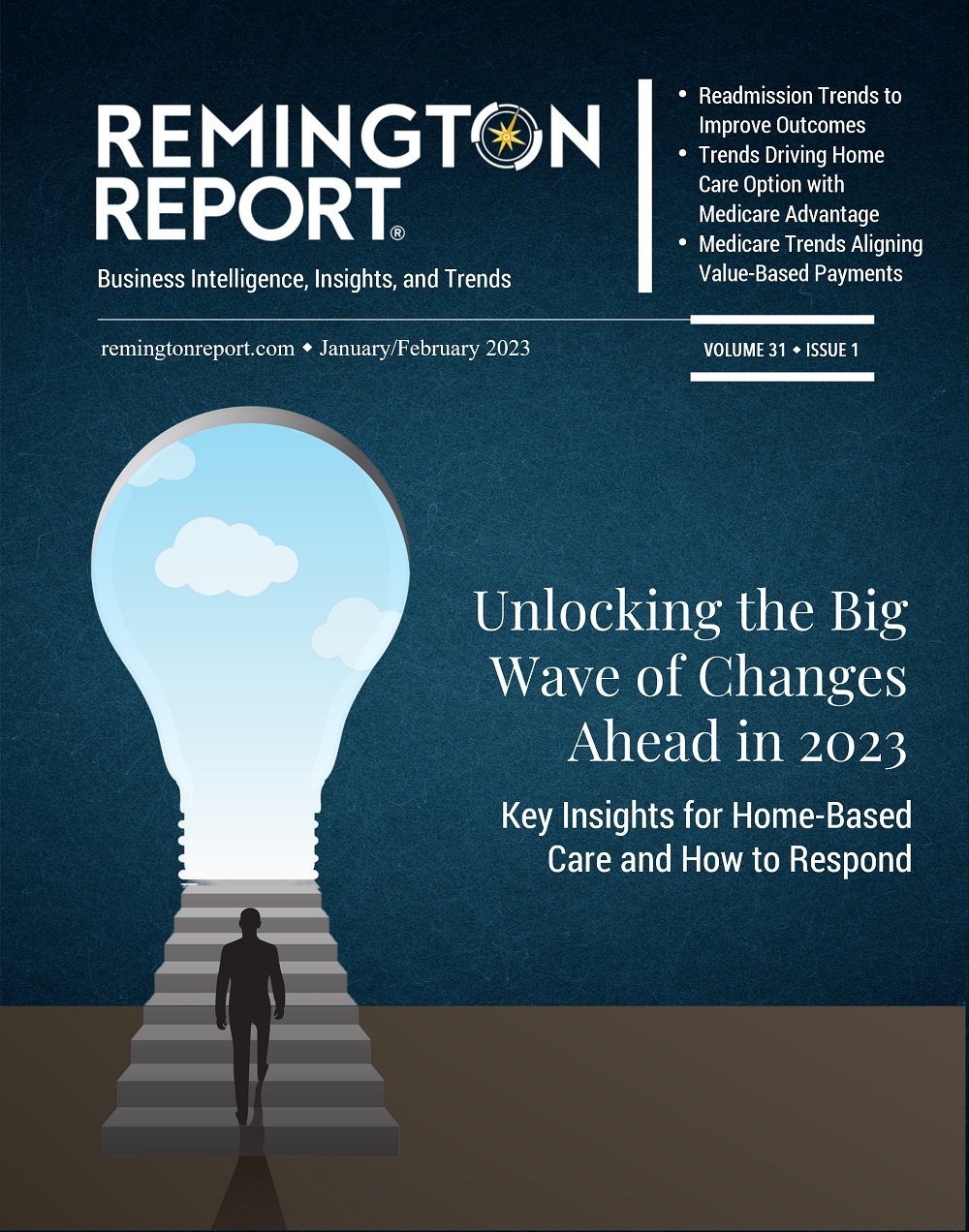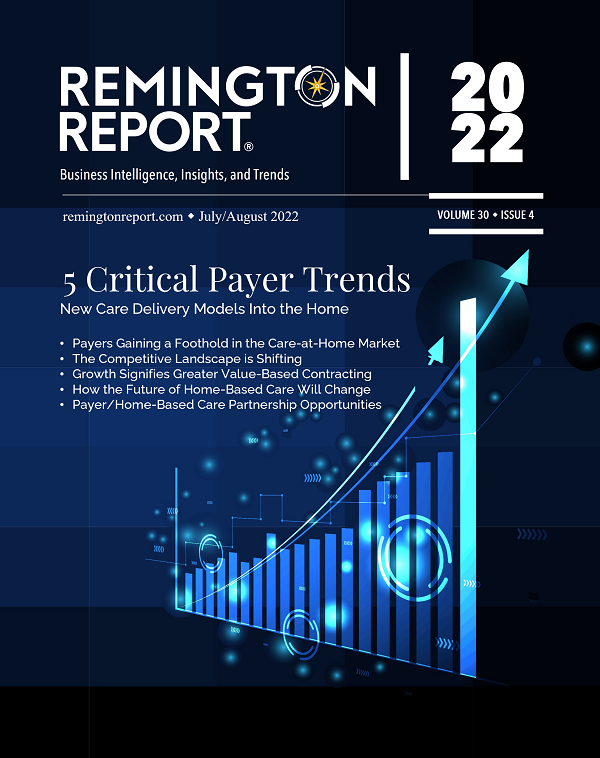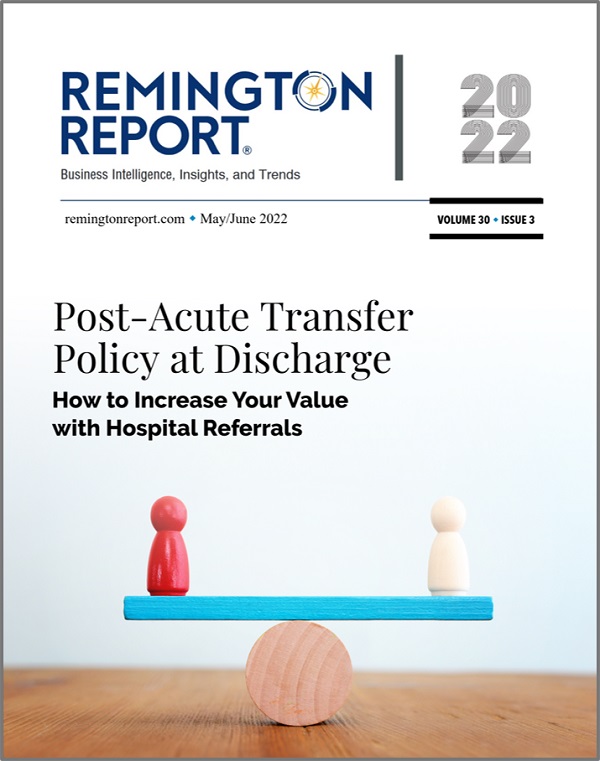-
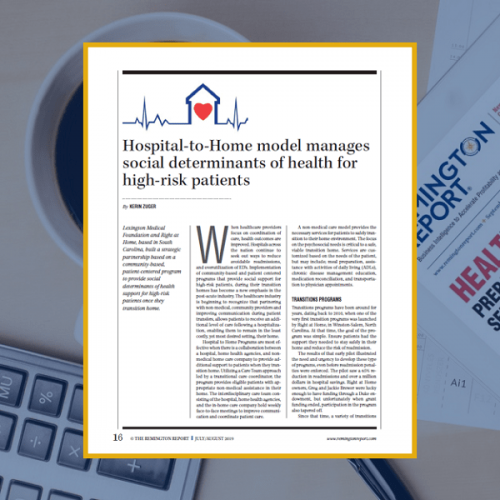 Lexington Medical Foundation and Right at Home, based in South Carolina, built a strategic partnership based on a community-based, patient-centered program to provide social determinants of health support for high-risk patients once they transition home. This article is free to 1-Year Classic and 2-Year Premium subscribers.
Lexington Medical Foundation and Right at Home, based in South Carolina, built a strategic partnership based on a community-based, patient-centered program to provide social determinants of health support for high-risk patients once they transition home. This article is free to 1-Year Classic and 2-Year Premium subscribers. -
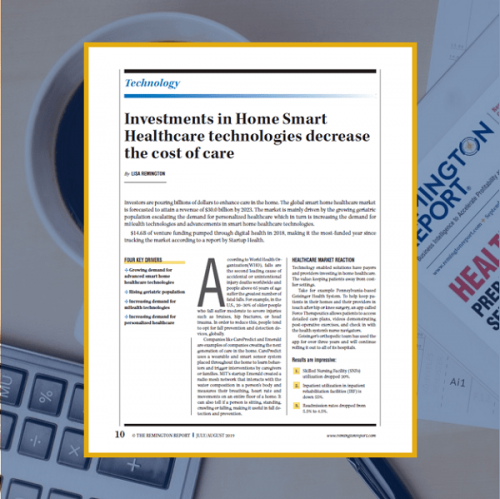 Investors are pouring billions of dollars to enhance care in the home. The global smart home healthcare market is forecasted to attain a revenue of $30.0 billion by 2023. The market is mainly driven by the growing geriatric population escalating the demand for personalized healthcare which in turn is increasing the demand for mHealth technologies and advancements in smart home healthcare technologies. This article is free to 1-Year Classic and 2-Year Premium subscribers.
Investors are pouring billions of dollars to enhance care in the home. The global smart home healthcare market is forecasted to attain a revenue of $30.0 billion by 2023. The market is mainly driven by the growing geriatric population escalating the demand for personalized healthcare which in turn is increasing the demand for mHealth technologies and advancements in smart home healthcare technologies. This article is free to 1-Year Classic and 2-Year Premium subscribers. -
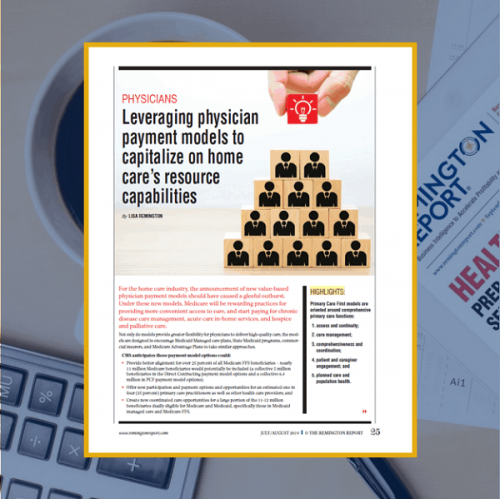 For the home care industry, the announcement of new value-based physician payment models should have caused a gleeful outburst. Under these new models, Medicare will be rewarding practices for providing more convenient access to care, and start paying for chronic disease care management, acute care in-home services, and hospice and palliative care. This article is free to 1-Year Classic and 2-Year Premium subscribers.
For the home care industry, the announcement of new value-based physician payment models should have caused a gleeful outburst. Under these new models, Medicare will be rewarding practices for providing more convenient access to care, and start paying for chronic disease care management, acute care in-home services, and hospice and palliative care. This article is free to 1-Year Classic and 2-Year Premium subscribers. -
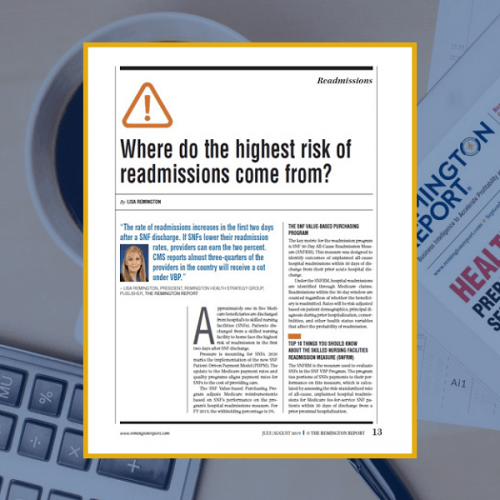 The rate of readmissions increases in the first two days after a SNF discharge. If SNFs lower their readmission rates, providers can earn the two percent. CMS reports almost three-quarters of the providers in the country will receive a cut under VBP. This article is free to 1-Year Classic and 2-Year Premium subscribers.
The rate of readmissions increases in the first two days after a SNF discharge. If SNFs lower their readmission rates, providers can earn the two percent. CMS reports almost three-quarters of the providers in the country will receive a cut under VBP. This article is free to 1-Year Classic and 2-Year Premium subscribers. -
 Of the 12 million Americans who qualify for both Medicare and Medicaid, 26% of hospitalizations were potentially avoidable. Total healthcare expenditures for this group exceed $300 billion a year, due in part to misaligned financial incentives between the two programs. This article is free to 1-Year Classic and 2-Year Premium subscribers.
Of the 12 million Americans who qualify for both Medicare and Medicaid, 26% of hospitalizations were potentially avoidable. Total healthcare expenditures for this group exceed $300 billion a year, due in part to misaligned financial incentives between the two programs. This article is free to 1-Year Classic and 2-Year Premium subscribers. -
 North Carolina will implement a groundbreaking program in select regions to pilot evidence-based interventions addressing issues like housing instability, transportation insecurity, food security, interpersonal violence and toxic stress. This article is free to 1-Year Classic and 2-Year Premium subscribers.
North Carolina will implement a groundbreaking program in select regions to pilot evidence-based interventions addressing issues like housing instability, transportation insecurity, food security, interpersonal violence and toxic stress. This article is free to 1-Year Classic and 2-Year Premium subscribers. -
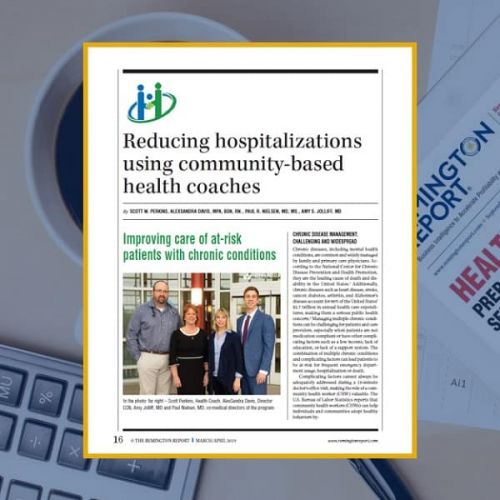 A recent study suggests health coaches could provide significant cost savings to patients and health systems, reduce patient hospitalizations and emergency department visits, improve patient health, and improve the quality of care for high-risk patient populations. This article is free to 1-Year Classic and 2-Year Premium subscribers.
A recent study suggests health coaches could provide significant cost savings to patients and health systems, reduce patient hospitalizations and emergency department visits, improve patient health, and improve the quality of care for high-risk patient populations. This article is free to 1-Year Classic and 2-Year Premium subscribers. -
 The race to value-based care is heating-up. In today?s healthcare landscape, value-based care is a hodge-podge of models. However, as we track changes to the healthcare infrastructure and payment reform, we see the escalation from fee-for-service models to value-based models supported by an increase in greater risk-sharing models. This article is free to 1-Year Classic and 2-Year Premium subscribers.
The race to value-based care is heating-up. In today?s healthcare landscape, value-based care is a hodge-podge of models. However, as we track changes to the healthcare infrastructure and payment reform, we see the escalation from fee-for-service models to value-based models supported by an increase in greater risk-sharing models. This article is free to 1-Year Classic and 2-Year Premium subscribers. -
 FirstHealth Home Care, a division of FirstHealth of the Carolinas, a comprehensive not-for-profit healthcare system in the mid-Carolinas, has always kept the focus on high quality patient care and actionable data to drive performance improvement. With the advent of the five year Home Health Value-Based Purchasing Model Pilot in 2016, FirstHealth was already demonstrating consistently high outcomes. This article is free to 1-Year Classic and 2-Year Premium subscribers.
FirstHealth Home Care, a division of FirstHealth of the Carolinas, a comprehensive not-for-profit healthcare system in the mid-Carolinas, has always kept the focus on high quality patient care and actionable data to drive performance improvement. With the advent of the five year Home Health Value-Based Purchasing Model Pilot in 2016, FirstHealth was already demonstrating consistently high outcomes. This article is free to 1-Year Classic and 2-Year Premium subscribers. -
 Each year, we compile The Remington Report Top 20 list of America?s largest publicly held home healthcare companies. It?s our way to recognize some of the players in our industry, to reflect on the year and to hopefully identify some trends that may impact the future. This article is free to 1-Year Classic and 2-Year Premium subscribers.
Each year, we compile The Remington Report Top 20 list of America?s largest publicly held home healthcare companies. It?s our way to recognize some of the players in our industry, to reflect on the year and to hopefully identify some trends that may impact the future. This article is free to 1-Year Classic and 2-Year Premium subscribers.

